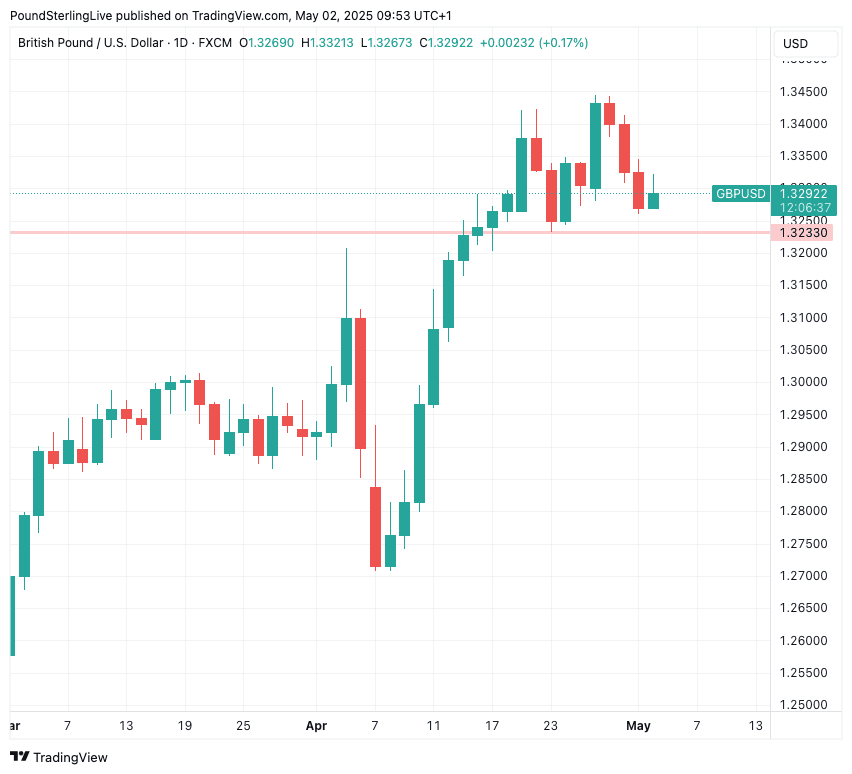
Image: Official White House Photo by Adam Schultz.
The Pound will continue to lose value to the Dollar.
This is according to ING Bank, where analysts think the near-term rebound in the Dollar won't be troubled by much.
The call comes ahead of the U.S. job report, which should show the country continued to churn out a healthy number of jobs despite Donald Trump injecting significant trade uncertainty into business planning during April.
The headline non-farm payroll is predicted to land at 130K, up from 228K in March. The rule-of-thumb says anything above here would propel the Dollar higher and anything below would weaken it.
However, ING's argument is that it's going to take a real big disappointment to shake the market at this stage, and absent such a shock, the easiest route forward for the USD is higher.
"We expect today’s US payrolls to be at 110k, below the 138k consensus but, in our view, not low enough to trigger concerns about employment by either investors or the Fed," says Francesco Pesole, FX Strategist at ING Bank.
"The dollar’s recovery trend could be put on pause today, but may resume soon as US assets can keep benefiting from the more subdued tone on US trade policy," he adds.
The Pound to Dollar exchange rate (GBP/USD) peaked at 1.34 earlier in the week before unwinding losses as investors welcomed calmer tones on trade between both the U.S. and China.
This signals that 'peak fear' has been reached on the matter of trade wars, allowing the 'sell America' trade to reverse.
A strengthening Dollar risks pushing GBP/USD below 1.3233, the April 23 low.
Above: The pullback in GBP/USD is still relatively shallow.
"The question today is whether US jobs data can trigger a reversal in the dollar momentum," says Pesole. "We think not."
According to ING, the real risk for the dollar may only lie below a 100k print." Anything between that and the 137k consensus may not leave a clear mark on FX."
Pesole argues that the market is already positioned for a deterioration in the U.S. jobs market, setting the bar relatively high for disappointment.
"A relapse of intense dollar shorting probably requires evidence of an abrupt rise in joblessness, not simply a gradual employment slowdown," he explains.

